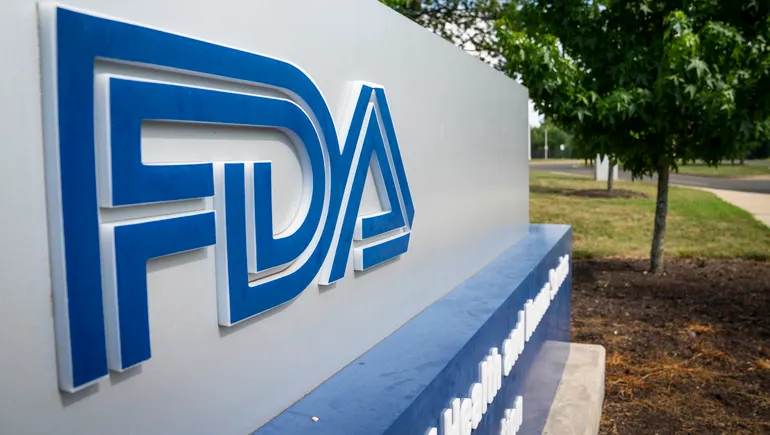Merck antibody drug for RSV approved by FDA


The Food and Drug Administration has cleared a new treatment designed to protect infants from respiratory syncytial virus.
Called Enflonsia and developed by Merck & Co., the drug is an antibody intended to prevent illness from RSV, which can be particularly severe in young children. It was approved on Monday for newborns and infants who are born during, or ahead of, their first RSV season.
Over the last couple years, the treatment landscape has changed significantly for RSV, a widespread pathogen that causes respiratory illness. Most of that innovation, though, has centered around preventive therapies for older adults, for which RSV infections can prove lethal. There are now three vaccines available from GSK, Pfizer and Moderna.
But RSV is also the leading cause of hospitalizations among infants in the U.S., and in that age group, the need for new treatments remains significant.
There are no RSV vaccines available for young children. Last year the FDA paused multiple trials of RSV shots following cases of severe RSV in a study run by Moderna. One vaccine, Pfizer’s Abrysvo, is available for pregnant women and can pass RSV protection over to newborns.
As a result, parents of young children largely rely on antibody drugs that can provide short-term protection against illness. One, approved more than two decades ago and named Synagis is limited to high-risk infants. The other, Sanofi’s and AstraZeneca’s Beyfortus, was cleared in 2023 and has quickly become a blockbuster drug. Early demand was so strong for Beyfortus that Sanofi initially struggled with supply before boosting its manufacturing capabilities.
On Monday, Sanofi announced plans to accelerate shipping of Beyfortus to “ensure broad availability” ahead of the coming RSV season.
Merck aims to show that Enflonsia, formerly known as clesrovimab, can grab some of Beyfortus’ market share. In testing, the drug reduced the incidence by RSV disease compared to a placebo by 60%, and hospitalizations from illness by 84%, over the course of five months. Those results were enough to garner an approval, though Wall Street analysts have been skeptical as to whether they’re meaningfully different than the data supporting Beyfortus, leading to questions about Enflonsia’s sales potential.
Merck’s drug may be more accessible than Beyfortus, however. Unlike Beyfortus, it can be given regardless of an infant’s weight. The drug can also be used as a single shot instead of two injections.
“Enflonsia combines dosing convenience with strong clinical data showing significant reductions in RSV disease incidence and hospitalizations, making it a promising new intervention to help protect infants from RSV,” said Octavio Ramilo, chair of the Department of Infectious Diseases at St. Jude Children’s Research Hospital and a study investigator, in a statement provided by Merck.
A panel advising the Centers for Disease Control and Prevention will meet later this month to discuss recommendations for using Enflonsia. Merck said drug shipments should be available before the start of the 2025-2026 RSV season.
The drug shouldn’t be given to infants with a history of serious hypersensitivity reactions, such as anaphylaxis, to any of its components, Merck said.
This post has been syndicated from a third-party source. View the original article here.




